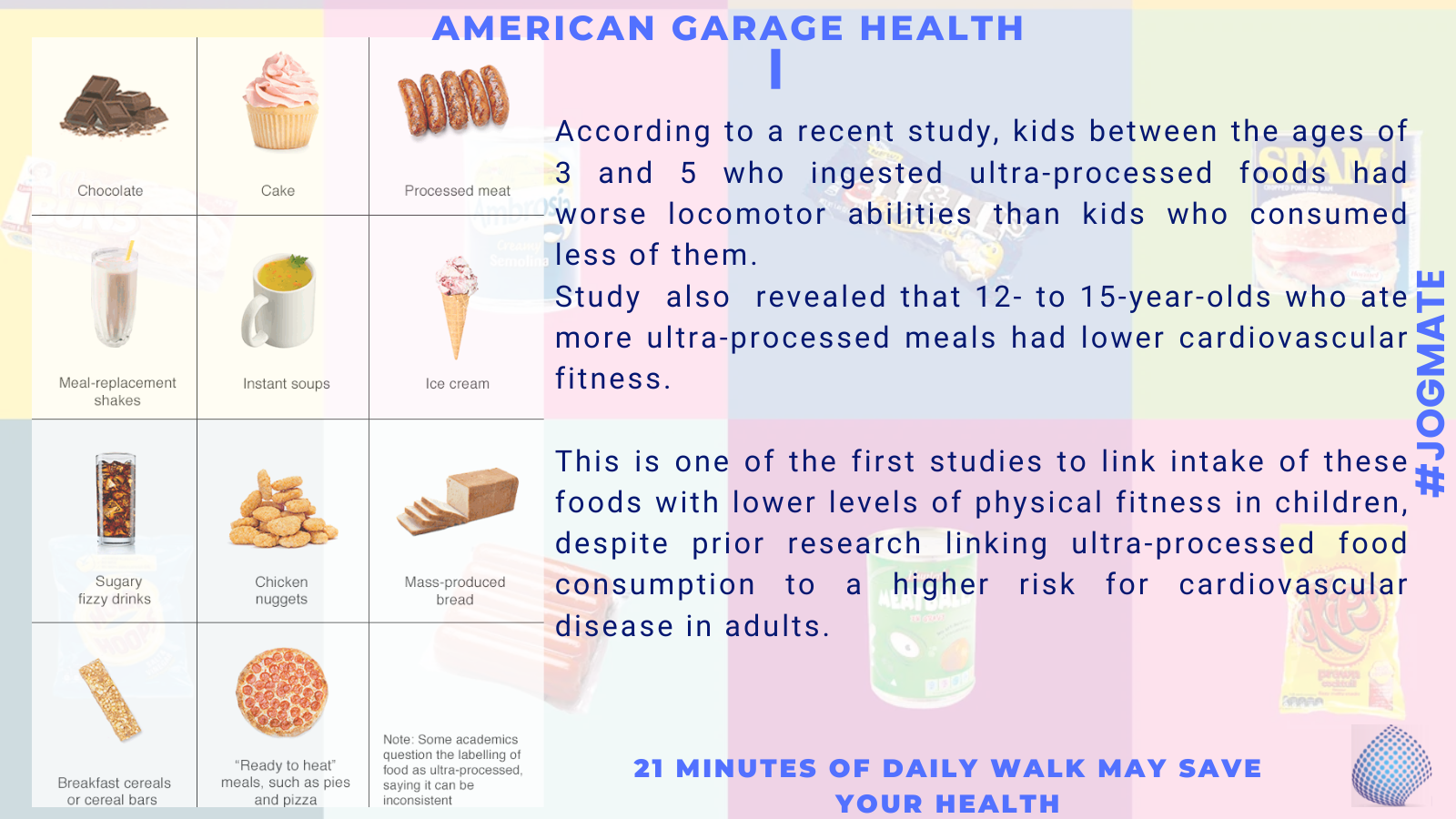
According to a recent study, kids between the ages of 3 and 5 who ingested ultra-processed foods had worse locomotor abilities than kids who consumed less of them.
Additionally, it revealed that 12- to 15-year-olds who ate more ultra-processed meals had lower cardiovascular fitness. This is one of the first studies to link intake of these foods with lower levels of physical fitness in children, despite prior research linking ultra-processed food consumption to a higher risk for cardiovascular disease in adults.
In this study, ultra-processed foods were defined as prepared foods like pizza, hotdogs, burgers, and chicken nuggets as well as packaged snacks, breakfast cereals, candy, soda, sweetened juices and yoghurts.
“Healthy dietary and exercise behaviors are established at a very young age,” said research team leader Jacqueline Vernarelli, Ph.D., at Sacred Heart University. “Our findings point to the need to educate families about cost-effective ways to reduce ultra-processed food intake to help decrease the risk for cardiovascular health problems in adulthood.”
The researchers examined information from the National Youth Fitness Survey of the National Health and Nutrition Examination Survey (NHANES) to look at the relationship between physical fitness and ultra-processed meals during different stages of childhood.
More than 1,500 American children ages 3 to 15 participated in this 2012 survey, which employed interviews and fitness tests to gather information on their physical activity, fitness levels, and dietary habits. NOVA, a system for classifying food and drink items according to the degree of food processing, was used to identify ultra-processed foods.

The researchers utilised locomotor development as a gauge of physical fitness in kids under the age of five.
According to the data, children with the lowest scores for locomotor development ingested 273 more calories per day from ultra-processed foods than kids with the greatest scores for this factor. In older kids, cardiovascular fitness was utilised as a gauge of physical fitness.
According to the study, preteens and teens who had healthy cardiovascular fitness consumed 226 less calories per day from ultra-processed foods than those who did not. The researchers will take a closer look at age-specific consumption trends for ultra-processed food as a following step. It might be easier to promote healthy eating if we had a better grasp of how and when certain foods are consumed.
